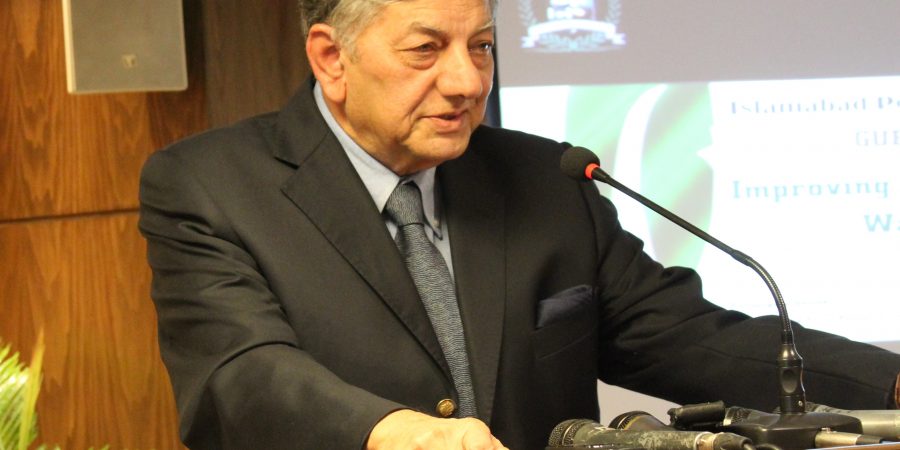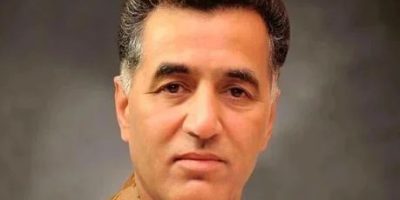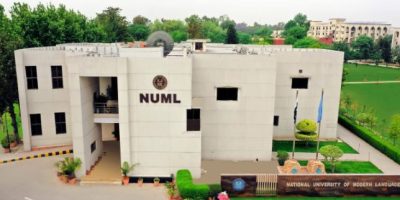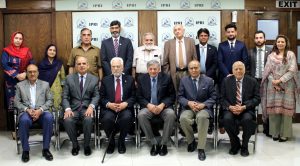‘Pak should seek working relationship with US instead of strategic relationship: Riaz Khokhar

ISLAMABAD, AUG 21 (DNA) – Former Secretary Foreign Affairs Riaz Khokar has said “there are more divergences than points of convergence between Pakistan and US relations.
Pakistan should not seek a strategic relationship with the US. Instead, we should aspire for a working relationship, which is cordial and dynamic, and does not curtail our sovereignty and national interest.”
These were the views of former Ambassador Riaz Khokhar at the guest lecture organised by the Islamabad Policy Research Institute here in Islamabad, today.
Ambassador Khokhar has been Pakistan’s envoy to Dhaka, New Delhi, Washington, D.C. and Beijing before becoming Foreign Secretary in 2002. The lecture on ‘Improving Pakistan-US Relations: Ways and Means’ explored Pakistan’s relationship with the US, in light of the former’s ties with China and the latter’s with India. He also discussed Prime Minister Imran Khan’s meeting with US President Donald Trump and the situation in Indian Occupied Kashmir (IOK).
AmbassadorKhokhar opined that Pakistan and the US have been allies and have shed blood together. Therefore, neither side can easily brush this relationship aside in spite of President Trump’s choice of hard words at times and vacillating approach towards Pakistan.
‘My take is that we should not be emotional about our relationship with the US.Pakistan needs to have a working relationship.’ The US was a superpower and the only way forward is to have sustained diplomatic dialogue, and to collaborate in areas where there is convergence such as trade, energy, transport, and especially, education, he said.
He shared that Pakistan’s relationship with the US cannot be analysed in isolation since the international order is in flux, with China rising phenomenally, Russia re-asserting itself, and the Middle East in extreme turmoil.
‘Every US security document over the past few years identifies China as a major threat for the US, followed by Russia, North Korea and Iran. Pakistan has historic relations with China that go as far back as the 1950s. This is a solid, iron-clad strategic relationship which neither side should allow anyone to undermine,’ he stressed.
On the issue of Prime Minister Imran Khan’s visit to the US, Ambassador Khokharstronglyheld the view that while both leaders ‘clicked’ and had chemistry, the US’ main interest remains Afghanistan since there wasrealisation in Washington that there is no military solution to the Afghan tangle. It has to be an Afghan solution, and how far Pakistan could go towards helping them in resolving it.
He said that ‘while the Taliban are now on the negotiating table, Pakistan does not have overwhelming influence over them nor over the ethnic mosaic of Afghan tribes. It would not be in Pakistan’s interest to give any guarantees or get involved in the actual terms and conditions of a settlement agreement. Pakistan is not seeking an Islamabad-made solution to the Afghan problem.’
Ambassador Khokharpointed out thatIndia was also an important actor influencing Pak-US dynamics. The US expects India to be a partner in the containment of China. In this regard, Pakistan’s overall endorsement of the Belt and RoadInitiativemay also be problematic for Washington. Western countries have a soft corner for Delhi. That is why India is painted as a responsible nuclear power, he said.
Discussing the rising tensions in Indian Occupied Kashmir, the Ambassador remarked that mild US statements on Indian atrocities were indicative of where their sympathies lie. ‘War is neither an option for India nor for Pakistan, both have nuclear capabilities. Pakistan would like to live in peace and harmony with India. We should engage with India but not beg for a dialogue. A dialogue has to be in the interest of both countries. As far as Kashmir is concerned India has never agreed to third-party mediation, and I doubt they ever will,’ he observed.
Earlier, welcoming the eminent speaker, diplomats, senior academics, students and media channels, President of IPRI Ambassador (Retd.) Khan Hasham bin Saddiqueprovided a brief historical overview of Pak-US relations and said that despite multiple centres of power emerging around the globe, the US remains the sole super power given its economic, technological and military power.
‘Unfortunately, our relationship with the US has historically suffered due to lack of trust on both sides.
The one word which best describes this relationship is ‘transactional,’’ he opined. While pointing out that Pakistan has USD 4 billion trade surplus with the US, Vice Admiral Saddique remarked that ‘our relationship with Washington is generally hyphenated with India and Af-Pak.’ =DNA
Related News

Pak Army starts inquiry against ex-DG ISI
DNA ISLAMABAD: Pakistan Amry has constituted an inquiry committee to probe charges against former DGRead More

54 students of NUML visit Parliament House
ISLAMABAD, APR 17 (DNA) —A delegation of 54 students from the National University of Modern LanguagesRead More



Comments are Closed